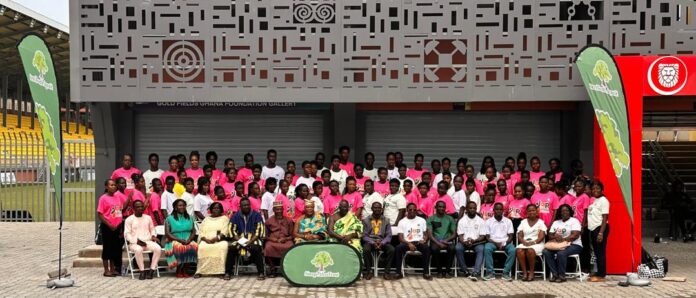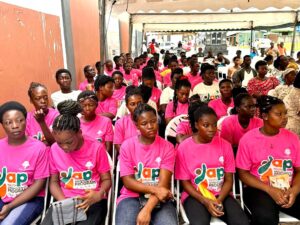The Youth Apprenticeship Programme (YAP) has been officially launched in Takoradi and Tarkwa in the Western region, with 350 young people expected to receive training in vocational skills across various trades.
Out of the total number, 150 youth will be trained in Tarkwa, while 200 will undergo apprenticeship in Takoradi.
The initiative, spearheaded by Sinapi Aba Trust, is designed to equip vulnerable youth with employable skills to reduce unemployment and curb social vices.
Since its inception in 2003, the programme has trained more than 6,000 young people nationwide.
Currently, about 1,500 apprentices are undergoing training in trades such as dressmaking, hairdressing, catering, and carpentry.
Speaking at the launch, Araba Mosner-Ansong, Programs Manager for International and Partner Relations at Sinapi Aba Trust, said the programme is a strategic move to support youth development and reduce risk factors such as teenage pregnancy and armed robbery.
“This programme is very dear to Sinapi Aba. We believe it’s an effective way to take young people off the streets and guide them towards a productive future,” she said.
The launch drew traditional leaders and community stakeholders, including Daniel Kudjoe, who represented Nana Egodzie Essoun III, Divisional Chief of Kwesimintsim and Gyantua Hene of the Ahanta Traditional Council, and Nana Adjoa Akyere I, Queen Mother of the Tarkwa-Nsuaem community.
During the event, the National Coordinator of the Business Resilience Programme, Jerry Blankson, urged the youth to take full advantage of the opportunity.
“The skills you are about to acquire can transform your lives. Be committed, stay focused, and make the most of this chance,” he advised.
Some of the beneficiaries expressed excitement about the opportunity, describing it as a turning point in their lives.
They indicated that the training would enable them to become self-reliant and support their families.
The Youth Apprenticeship Programme (YAP) forms part of broader efforts to tackle youth unemployment and promote inclusive economic growth.






